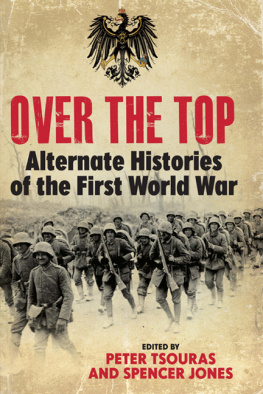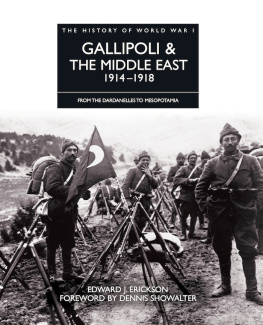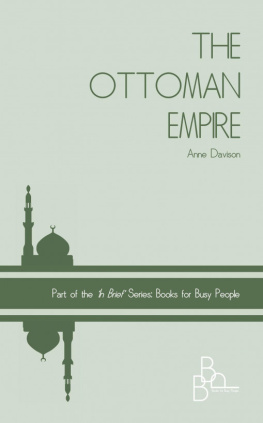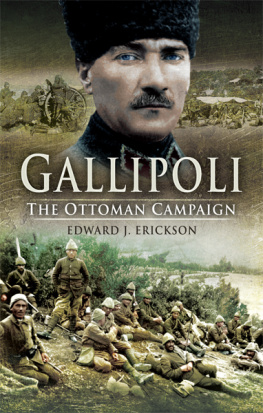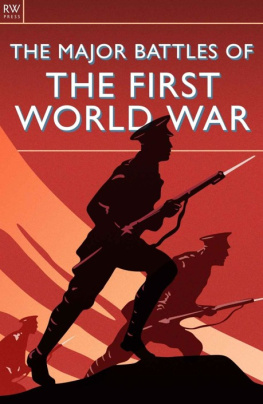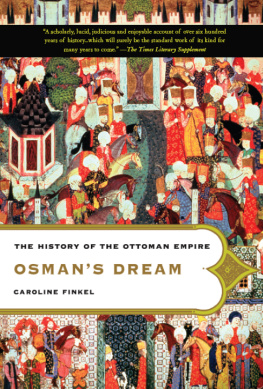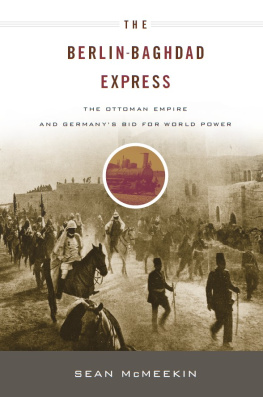To Those Who Served in the War to End All Wars, 19141918


Over the Top: Alternate Histories of the First World War
This edition published in 2014 by Frontline Books,
an imprint of Pen & Sword Books Ltd,
47 Church Street, Barnsley, S. Yorkshire, S70 2AS
www.frontline-books.com
Copyright Pen & Sword Books Ltd, 2014
The right of the contributors to be identified as the authors of this work has been asserted by them in accordance with the Copyright, Designs and Patents Act 1988.
ISBN: 978-1-84832-753-5
eISBN: 9781473841628
All rights reserved. No part of this publication may be reproduced, stored in or introduced into a retrieval system, or transmitted, in any form, or by any means (electronic, mechanical, photocopying, recording or otherwise) without the prior written permission of the publisher. Any person who does any unauthorised act in relation to this publication may be liable to criminal prosecution and civil claims for damages.
CIP data records for this title are available from the British Library
For more information on our books, please visit
www.frontline-books.com, email info@frontline-books.com
or write to us at the above address.
Printed and bound by CPI Group (UK) Ltd, Croydon, CR0 4YY
Typeset in 11.75/14 point Adobe Jenson Pro by JCS Publishing Services Ltd,
www.jcs-publishing.co.uk
Contents
Illustrations
Maps
Plates
Chapter 1 Der Tag : The Germans Decision to Go East in 1914
Chapter 2 Vormarsch! The German Breakthrough at Ypres, 1914
Chapter 3 Kitchener of Arabia
Chapter 4 The Queen of Cities Beckons
Chapter 5 Germania Delenda Est : America Enters the War, 1915
Chapter 6 Britannia Rules the Waves: The Battle of Jutland, 1916
Chapter 7 The Brusilov Offensive: Russias Glory
Chapter 8 The Somme Steamroller
Chapter 9 From Mud, Through Blood to the Green Fields Beyond: The Great Allied Tank Offensive of 1917
Chapter 10 German Strategic Bombing, the Murder of David Lloyd George, and the Rise of Lord Northcliffe
All plates are supplied from the private collections of Dr Spencer Jones and Peter Tsouras.











Contributor Biographies
Stephen Badsey PhD MA (Cantab) is Professor of Conflict Studies at the University of Wolverhampton, UK and a Fellow of the Royal Historical Society. An internationally recognised authority on military history and military-media issues, he has written or edited twenty-five books and more than sixty-five articles, his writings have been translated into five languages and he appears frequently on television and in other media.
Spencer Jones is Senior Lecturer in Armed Forces and War Studies at the University of Wolverhampton. He currently serves as Regimental Historian for the Royal Regiment of Artillery. His previous publications include From Boer War to World War: Tactical Reform of the British Army 19021914, Stemming the Tide: Officers and Leadership in the British Expeditionary Force 1914 and The Great Retreat of 1914: From Mons to the Marne .
Stuart Mitchell is currently working towards his PhD at the University of Birmingham, tackling the process of learning in the British Army during the First World War. He is also Secretary of the Centre for War Studies at the University of Birmingham and a member of the British Commission for military history as well as the Institute for Historical Research.
James Pugh holds a BA (Hons) in Contemporary Military and International History (Salford), an MA in International History (Wales), and a PhD in Modern History (Birmingham). He is currently a visiting lecturer with the University of Birmingham, specialising in air-power studies and the history of the First and Second World Wars. His thesis explored the conceptual origins of the control of the air in Britain between 1911 and 1918. He has also written on air-power leadership and doctrine.
Peter G. Tsouras is a retired army officer and a retired senior intelligence officer for the National Ground Intelligence Center and Defense Intelligence Agency. He has written extensively on the Second World War and is a leading author of military alternative history to include Disaster at D-Day , Gettysburg: An Alternate History , Stalingrad: An Alternate History , and the Britiannias Fist Trilogy , as well as six anthologies. He is the author and/ or editor of twenty-eight books and forty-five articles, and writes a regular column, Forgotten History, for Armchair General Magazine . His Scouting for Grant and Meade: The Memoir of Sergeant Knight, Chief of Scouts, Army of the Potomac will appear in 2014.
Introduction
The Great War was just that great beyond all experience. It remained the Great War until madness a generation later forced it to become merely a numbered war. Nevertheless, one must go back 2,400 years to find another such inter-civilisational war that was so devastating to the spirit of the age to the Peloponnesian War (431404 BC ). As the flower of Athens died in the quarries of Syracuse or with throats cut on Goat Creek, so did the shining youth of Europe die in the mud of the Somme, the charnel house of Verdun, and across the vast distances of the Eastern Front.
Four great empires were destroyed by the war: the Austro-Hungarian, the German, the Ottoman, and the Russian empires all fell during or shortly after the conflict. The war culled the European peoples of some of their best and brightest. The survivors sought meaning in the conflict and christened it the war to end all wars, hoping that the sheer cost would dissuade nations from future struggles. But the Great War did not end war; in fact it only seeded monstrous tyrannies in Germany and Russia and laid the foundations for a vaster, even more destructive war between 1939 and 1945. Its name even changed, from the Great War to merely the First World War, the precursor to the Second World War, and so slipped from historical prominence.
Next page

